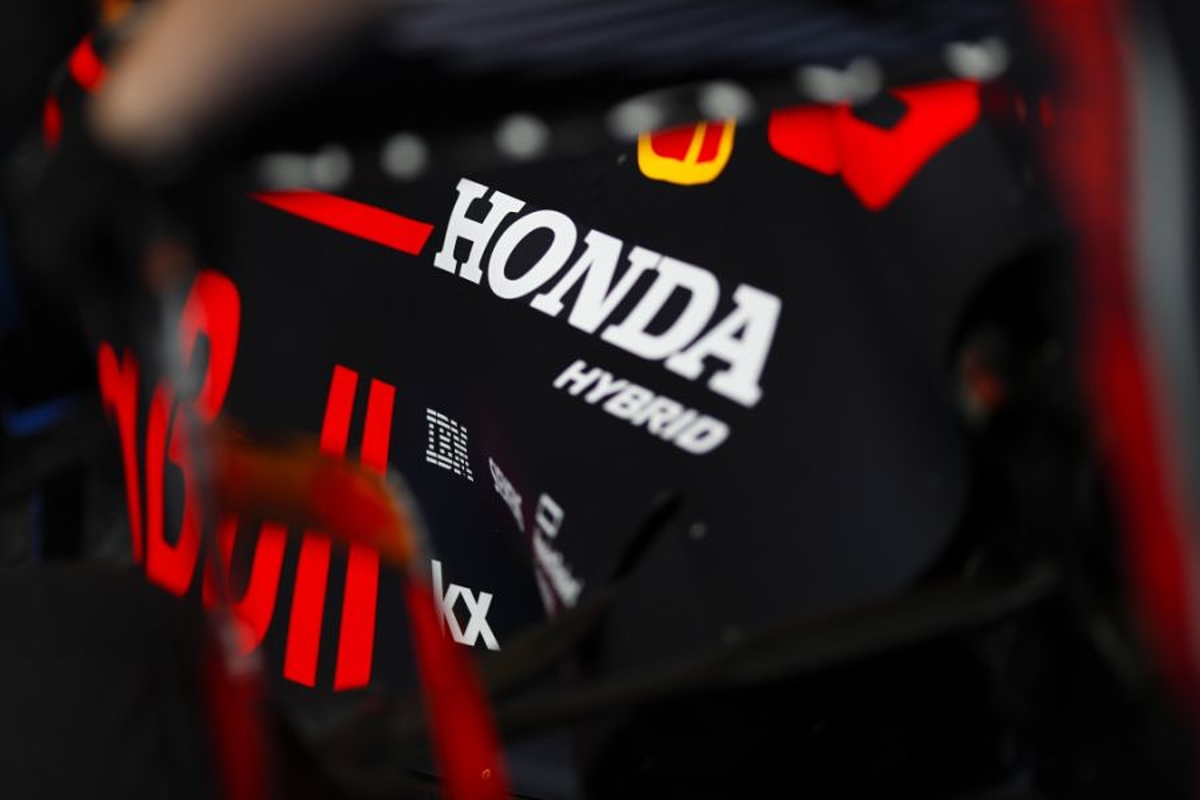Formula 1 is suddenly facing major questions over its future following Honda's shock announcement it is to quit the sport at the conclusion of the 2021 season.
The Japanese manufacturer has partnered with McLaren, Red Bull and Toro Rosso/ AlphaTauri since its return to F1 in 2015, gaining success with the latter two teams with victories across the previous two seasons.
The reasons for its exit were made clear in a statement, with Honda stating its desire to be carbon neutral by 2050, and to that end, it would be funnelling its resources into the "research and development into the areas of future power unit and energy technologies, including fuel cell vehicle (FCV) and battery EV (BEV) technologies, which will be the core of carbon-free technologies".
With the creation in April of this year of a new Innovative Research Excellence, Power Unit & Energy centre, Honda is to utilise the knowledge it has gained in F1 to take "initiatives while focusing on the future realisation of carbon neutrality".
The sport has set itself a 2030 target for its own carbon neutrality in order to further align itself with the way of the world. Rightly so in the face of growing criticism about the sport's effect on the environment.
There is also a growing fanbase surrounding Formula E, the electric single-seater series which has been granted world championship status by the FIA.
New Renault CEO Luca de Meo claimed the push for sustainability was a crucial factor in Renault remaining in the sport as Alpine, saying he will ensure the team will "be at the front of the pack" during the project.
"I think we also need to address this expectation because it is an expectation of society," said De Meo. "It is not only pushed by regulators, it is important for younger generations. We need to address this issue."
But the Honda withdrawal statement is potentially damning for F1, considering the sport is itself on the quest of carbon neutrality by 2030.
The fact Honda is pulling out because it is striving for the same target 20 years down the line, one must ask, is F1 capable of achieving its goal?
Also, what is the sport physically doing to achieve an environmentally friendly status?
Earlier this year this writer spoke to the chief technical officer of Formula 1 Pat Symonds, who outlined his plans to introduce carbon-neutral fuels to the sport.
"Bringing in a carbon-neutral fuel is exactly what we are working on at the moment and I hope that that’s not going to be very long," he explained.
“The problem is, while people will talk about carbon-neutral fuels, they are really talking about the sort of ethanols and things like that which have been around for a long while, and they’re not terribly efficient fuels.
“So we want good fuels, and while these do exist, they don’t exist in any quantities.
”We are looking at producing the amount of fuel that we need, and in doing so sort of pushing along some of the technologies that are producing these carbon-neutral fuels.
"While I think that there’s a place for electric vehicles, both on the road and racing, I think there’s also a place for the combustion engine – providing that it is running on a carbon-neutral fuel. That can be done and we have got to show how it can be done.”
But is simply changing the fuel used in the cars on a race weekend good enough? Sebastian Vettel isn't convinced.
The four-time champion was outspoken on the topic earlier this season. The German passionately called for the sport to start taking the lead on the issue with the vast amount of technology available to the paddock.
"Obviously, there are world championships in many different sports but Formula 1 is held around the globe every year and in many different countries," he said.
"I think as a global sport we should act responsibly and I think Formula 1 should set the examples rather than reacting to the pressure from the outside.
"When it comes to the environment obviously, we are driving around on the weekend in cars and burning fuel, which is probably a very small amount of the total energy or the total carbon footprint if you want to talk in CO2 terms."
F1 knows this. A pledge to introduce more efficient logistics between factories and race tracks - especially on long-haul journeys to the outer reaches of the calendar - and a commitment to making all races sustainable by 2025 is a step in the right direction.
Vettel will not be the only driver advocating change. Lewis Hamilton, the sport's most influential character, has set up a team in the brand new Extreme E series - a rally-like spin-off of Formula E.
In fact, whilst Hamilton recognises the effort F1's top brass is putting into achieving a more sustainable model, he has conceded to changing aspects of his own lifestyle to offset the effects the sport has on the environment.
"[I am making] long term, rest of life changes in my life," Hamilton said recently.
"Undoubtedly it is difficult because you have people who are like 'Yeah, but you race a Formula 1 car every weekend.'
"I think ultimately, some of it is education because not everyone knows what footprint our sport has and what we are currently doing to try and improve that, but what I have tried to say is that I am making a lot of changes in my personal life.
"I don't drive any of the cars I own anymore, I only drive my [Mercedes-Benz] EQC and if I get picked up at the airport, I request to have an electric car.
"I am trying to do my best whilst still doing what I love doing and helping to put pressure on people here in this sport because there are lots of areas where we can be way more sustainable and I think I have got more power from within."
But Honda's withdrawal must cast doubt as to whether F1's vision is achievable. It must also create a cloud around the future of the other three engine manufacturers.
Yes, the teams have signed the Concorde Agreement which binds them to the sport but in the end Mercedes, Ferrari and Renault are major corporations that will pull the plug if needed.
Also bear in mind that there is understood to be provision within that Concorde for a team to pull out of F1 by providing a year's notice.
The Covid-19 pandemic has put strains on businesses around the world and the financial impact will almost certainly have played on the minds of these companies as they look to rearrange resources to safeguard their futures.
It is not the first time this has been the case either. The global credit crunch in the late 2000s coincided with the departures of BMW, Toyota and, ironically, Honda.
Again, the allure of Formula E's environmental status is surely magnetising in the current state of affairs.
Most major manufactures worth their weight in gold are racing in the electric series. Indeed, Renault used to. If F1 cannot either be trusted or isn't able to reach carbon-neutrality, do not be surprised if there is a mass exodus from the sport.
Given Honda's departing statement, it is surprising its vision and that of F1 were not aligned. The fact Honda leaves to pursue its goal alone hardly makes sense.
Before you go...
"Shielded" Albon used ethnicity to "stand out" from the crowd
Ricciardo aware he still needs luck on his side to clinch overdue podium
Related






































 Grand Prix of Australia 2025
Grand Prix of Australia 2025  Grand Prix of China 2025
Grand Prix of China 2025  Grand Prix of Japan 2025
Grand Prix of Japan 2025  Grand Prix of Bahrain 2025
Grand Prix of Bahrain 2025  Saudi Arabian Grand Prix 2025
Saudi Arabian Grand Prix 2025  Grand Prix De Monaco 2025
Grand Prix De Monaco 2025  Gran Premio de España 2025
Gran Premio de España 2025  Grand Prix du Canada 2025
Grand Prix du Canada 2025  Grand Prix of Austria 2025
Grand Prix of Austria 2025  Grand Prix of Belgium 2025
Grand Prix of Belgium 2025  Grand Prix of Hungary 2025
Grand Prix of Hungary 2025  Grand Prix of Azerbaijan 2025
Grand Prix of Azerbaijan 2025  Grand Prix of Singapore 2025
Grand Prix of Singapore 2025  Gran Premio de la Ciudad de Mexico 2025
Gran Premio de la Ciudad de Mexico 2025  Grande Prêmio de São Paulo 2025
Grande Prêmio de São Paulo 2025  Qatar Grand Prix 2025
Qatar Grand Prix 2025  Grand Prix of Abu Dhabi 2025
Grand Prix of Abu Dhabi 2025 